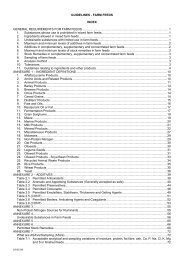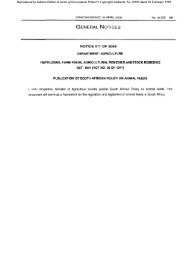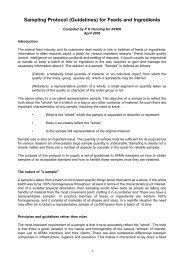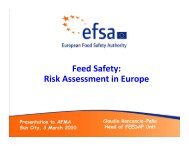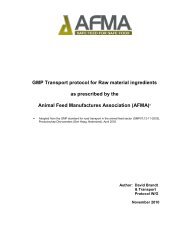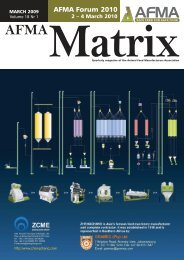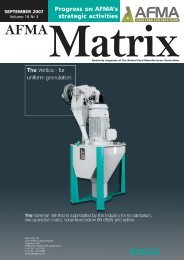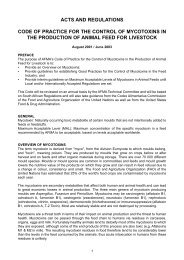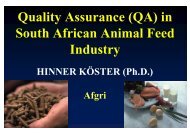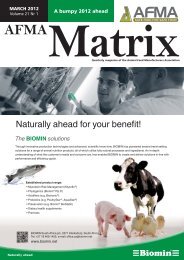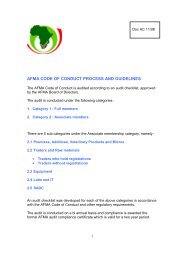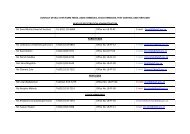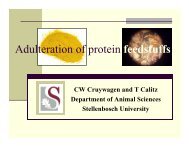Create successful ePaper yourself
Turn your PDF publications into a flip-book with our unique Google optimized e-Paper software.
Client focus<br />
Last, but not least<br />
By Loutjie Dunn, Afma-board, & Franscois Crots and Ernest King, Nutri Feeds<br />
The chairman of the Animal Feed<br />
Manufacturers Association<br />
(<strong>AFMA</strong>) noted in his address at<br />
the 2012 Symposium that the<br />
world feed industry has gone<br />
through various evolutionary phases over<br />
the past decade. Some of the major advances<br />
were due to improved predictions of energy,<br />
amino acids as well as vitamin and mineral<br />
requirements.<br />
It was later discovered that some of the<br />
minerals share complex interactions that<br />
should be kept in mind when formulating a<br />
balanced feed for optimum animal production.<br />
Based on the number of publications<br />
published over the past ten years, scientists<br />
have identified two areas of opportunities in<br />
an effort to reduce feed cost and/or alternatively<br />
enhance animal performance.<br />
Enzyme development<br />
The first focused on enzyme development. It<br />
appears that we have only scratched the surface<br />
and that these organic catalysts present<br />
a multitude of benefits but also some risks,<br />
if not properly evaluated. It is almost as if<br />
the future is telling us that, although we all<br />
had some exposure to microbiology at some<br />
stage during our educational upbringing, it<br />
would not be enough to guarantee our place<br />
in the future.<br />
Some deeper level of understanding is<br />
needed to fully capitalise on the full potential<br />
of enzymes, their interactions with each<br />
other as well as the mode of action inside the<br />
animal’s intestines.<br />
Raw material and quality<br />
Additionally, raw material processing and<br />
the quality improvement thereof have also<br />
been awarded some focus. It follows therefore,<br />
that the special GFFC/<strong>AFMA</strong> forum’s<br />
editions have also presented the reader with<br />
more insight into the interesting world of<br />
feed milling from a scientific, though commercial<br />
sensitive perspective.<br />
<strong>AFMA</strong> have always tried to keep its members<br />
scientifically informed, and this special<br />
edition has certainly not strayed from its<br />
original mandate. With global feed and food<br />
competitiveness ever changing, we would<br />
like to inspire our readers through the borrowed<br />
words of Charles Darwin to keep<br />
abreast with the latest science by virtue of<br />
the “tried and tested” <strong>AFMA</strong> Matrix: “It is not<br />
the strongest of the species that survive, nor<br />
the most intelligent that survives. It is the ones<br />
that is the most adaptable to change.”<br />
<br />
<strong>AFMA</strong> MATRIX ● APRIL <strong>2013</strong> 63



